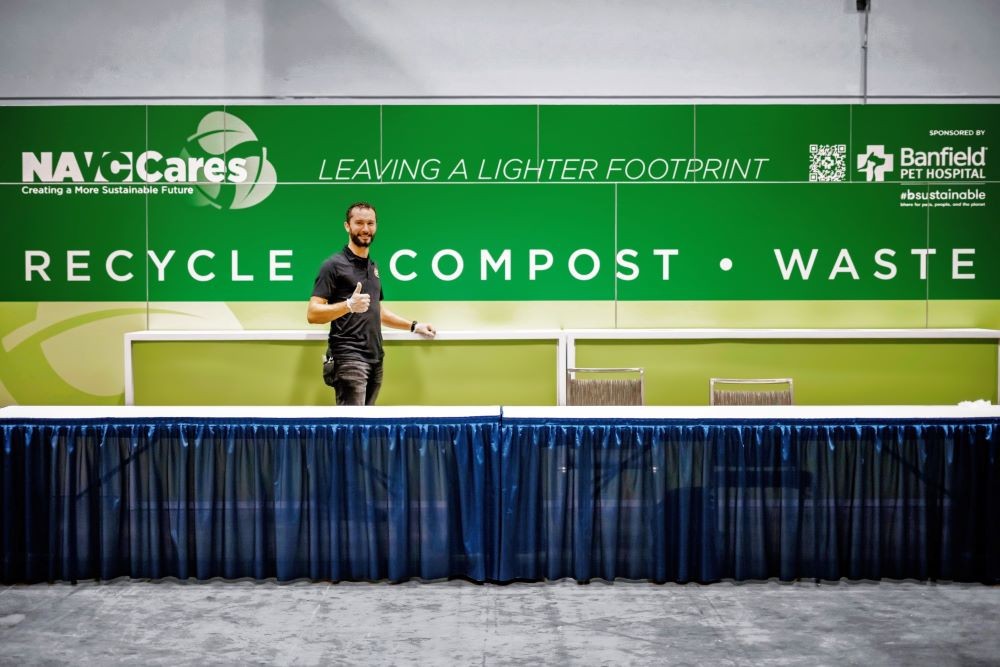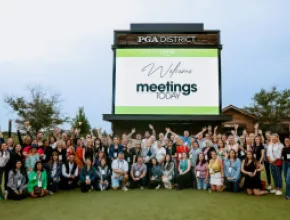The conversation around sustainability in the meetings and events industry is finally gaining some steam, but are actionable steps being taken by mega events and conventions that generate the biggest environmental impacts?
Many facilities have upped their game in this arena, but picking a convention center that is LEED certified or values sustainability is just one piece of the puzzle. The onus is on the group, too.
Groups have to take some initiative. They have to want to make a meaningful difference in their collective impact on the environment and take advantage of the offerings at a facility in order for the convention industry to make significant strides in sustainability. It can’t all be talk.
Luckily, some of the country’s biggest convention hubs are finally seeing this initiative take flight.
“Sustainability was a DMO-led initiative and now it's a planner-led initiative,” said Melissa A. Riley, SVP convention sales and services at Destination DC (DDC). “We're seeing it come through in questions in our RFPs, in consideration of venue selection and in greater interest in CSR and legacy programs in the destination.”
We spoke with some of the nation’s most prominent convention centers to suss out the on-the-ground trends in sustainability and how they’re seeing clients collaborate with them to go above and beyond.
Renewed Interest in Sustainability From Convention Customers
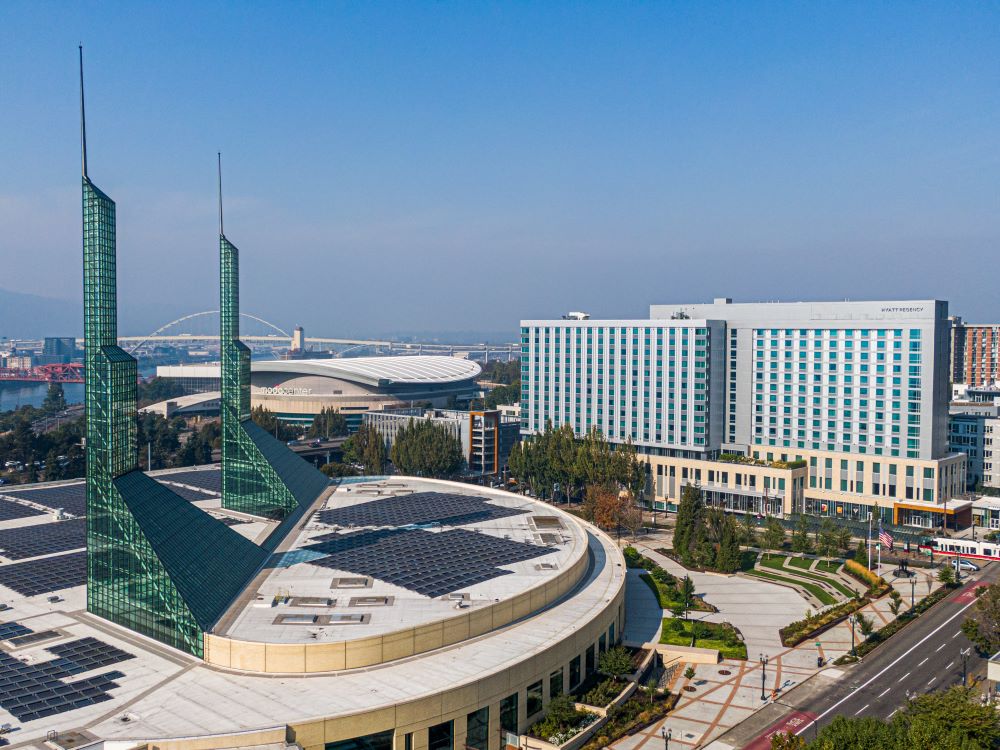
“As we are building back from the pandemic, many clients have a renewed interest in sustainable practices for their events,” explained Nancy Reimer, sustainability coordinator at Portland, Oregon’s LEED Platinum-certified Oregon Convention Center, which has long been at the forefront of environmentally responsible business practices, becoming the first convention center in the world to earn a LEED certification in 2004. “They want to see their event make a positive difference in the communities they visit, and they see the value that sustainability brings to improving guest experience. Many of the amenities that make our venue sustainable also, to put it simply, make it a nice venue to be at.”
Here, Reimer refers to the abundant natural daylight that reduces energy needs, the sustainable carpet tiles modeled after nature and the water bottle refill stations throughout the venue that are all features that improve the client experience while also help minimize the building’s footprint.
Katerina Chagoya, sustainability coordinator at Orange County Convention Center (OCCC) in Orlando—the third-largest convention center in the U.S.—is also seeing an uptick in interest from clients.
“Often, they might not know much about sustainability, but they want to know what we have to offer,” she said. “They will want to hear about what we can do for their events and how can they incorporate the initiatives we have in place.”
The North-South building at OCCC is LEED Gold-certified and has a variety of sustainability initiatives in place for events that include composting, waste diversion and food donation programs. The facility also has smart irrigation and renewable energy in place that make choosing OCCC an already smart step in the right direction.
[Related: 4 California Convention Centers That Prioritize Sustainability]
Location Is Important to Meet Sustainability Goals
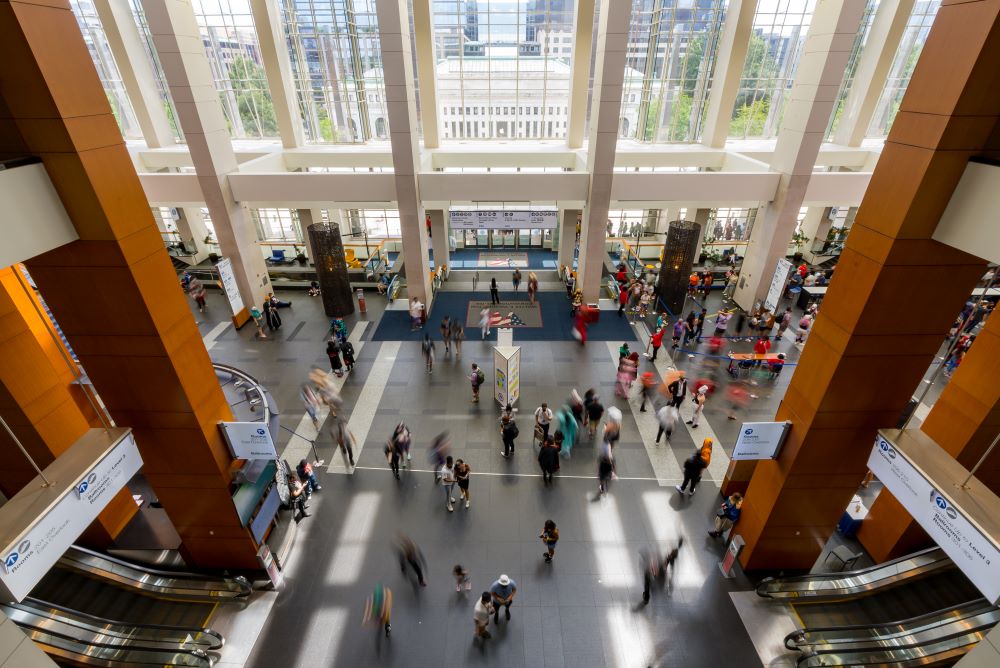
Not only is choosing the right convention center an important decision when considering sustainability goals for an event, but the overall destination is, too. There are transportation considerations: Is the convention district walkable to attractions and hotels? Are there EV charging stations or eco-friendly transit options? Is the destination within easy flying distance from most attendees?
The overall commitment to sustainability of the city in which a convention center resides is important for many groups, too.
Washington, D.C., is one such destination that is making sustainability a citywide effort. Mayor Muriel Bowser’s Sustainable DC 2.0 initiative has the goal of making D.C. the “healthiest, greenest, most livable city,” and is supported by the city’s DMO, DDC. In 2023, DDC launched the Sustainability District initiative, defined as “D.C.'s gateway for working with businesses and destination suppliers throughout the hospitality industry committed to promoting a more sustainable place to live, visit and meet.”
The Walter E. Washington Convention Center mirrors the city’s commitment to sustainability.
“The Walter E. Washington Convention Center recently achieved LEED Gold certification,” Riley said. “It's withing walking distance of dozens of hotels, restaurants and attractions including the National Mall and its free museums and monuments. The center is connected to the Metro for easy access to the Ronald Reagan National Airport and Dulles International Airport. We've had citywide meetings that never needed to use shuttles for transportation."
OCCC, too, follows Orlando’s lead.
“Orange County in general has their own sustainability action plan, so we follow the county’s lead on how much waste we should divert by 2025 and 2040,” Chagoya said, noting that this helps inform the OCCC’s sustainability action plan. “Also, adding more EV stations and promoting alternative transportation.”
Oregon Convention Center, like the city of Portland, promotes many forms of alternative transportation as well to help lower environmental impact.
“Numerous events make sure guests know to take advantage of our access to the light rail, streetcar, bus and bike options to get to the Oregon Convention Center,” Reimer said. “We are looking to add additional electric vehicle charging stations beyond the four we currently have.
“Several cities are looking closely at food waste reduction and striving to meet climate goals, which I’m seeing trickle down to requirements for composting and implementing reusables at large venues like convention centers and arenas,” she added.
Calculating a Convention Group’s Carbon Footprint
Measurement is key to making a true impact when it comes to hosting sustainable events, but many groups don’t know where to start. At OCCC, Chagoya and her team offer post-event sustainability reports that contain event-specific energy, water and waste metrics. Reports also include highlights of sustainability successes and recommendations for future events.
“Today, what most groups have started to do is they will ask for data and their sustainability metrics,” Chagoya said. “The event wants to know how much electricity they are using, gas usage, solar power generated by the building they are in, recycling numbers, food waste, waste diversion numbers. Some of those groups may also opt for a different sustainability initiative in addition, but many want to get a baseline of what they’re doing and see what they can do at future events.”
Once a group has a baseline idea of their impact, they can reevaluate where they need to improve or how they can offset.
The folks at Events DC, who oversee the Walter E. Washington Convention Center, are seeing more groups request data, too.
“During the RFP process and even throughout the planning process, we're getting a lot of questions around water consumption and a heavy emphasis on diverting plastic waste,” said Hootan Kaboli, senior vice president in the Office of the Executive Vice President and COO at Events DC, adding that the Walter E. Washington Convention Center has invested in new water fountains. “We track that with real data. On our fountains, we've incorporated a way to know every bottle of plastic that's been diverted through a use by filling based off of standard consumption. And then we're able to give that data to the event manager host…that's just one example of a low-hanging fruit, monitoring trends we've been able to address as a building.
“Some of the [other] questions are how much utility kilowatt hours have we consumed, and depending on the situation of each group, we're able to give them meter readings to let them know real-time, start to finish, including move-ins and move-outs, how much physical carbon footprint they're creating. And with that data, they're able to get better year after year, and challenge themselves and push themselves. We pride ourselves in having an in-house team that's able to really partner with the shows and deliver that data in real time.”
[Webinar: Food Waste: How You Can Help Lessen One of Our Industry’s Most Vexing Issues]
Going Green Is Good Business for Big Conventions
In a time where costs are high and budgets are tight, some groups might shy away from prioritizing sustainability, with the false perception that it costs more to go green. But Reimer finds that sustainable practices can actually do the opposite.
“Our food and material donation program, food waste reduction efforts and ample opportunities to reuse and recycle can help support lower costs for events and for our venue operations by reducing needs for shipping at move out and minimizing overall purchases for events,” she said.
Some Convention Groups Are Going the Extra Mile to Green Meetings
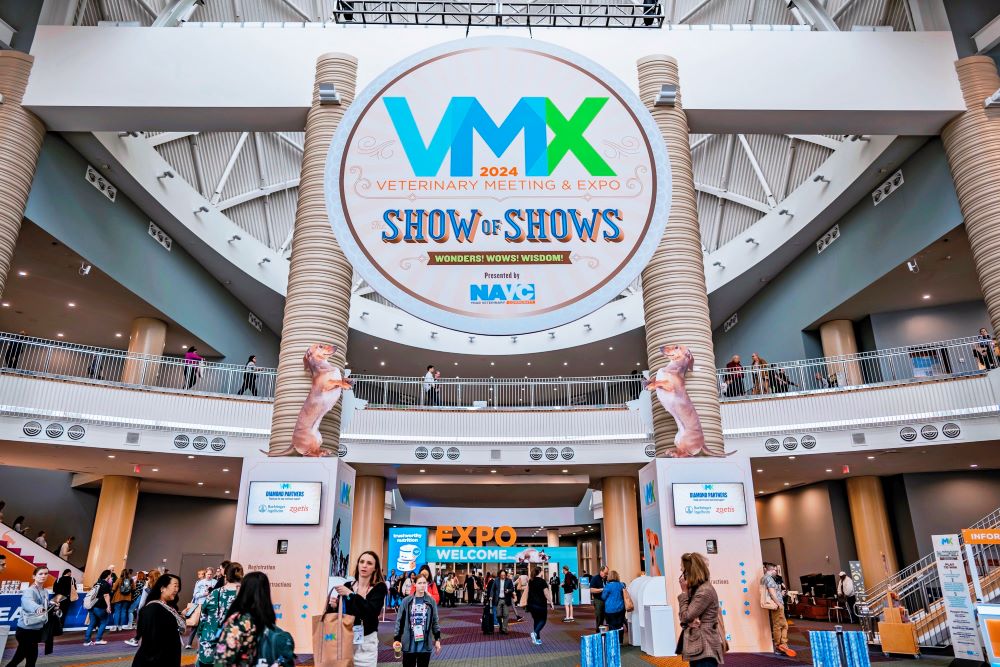
Few things delight sustainability coordinators at convention centers than when groups go the extra mile in making their event a green one. Chagoya has seen a few pioneers these past few years at OCCC that have impressed.
Veterinary Meeting & Expo (VMX) and Surf Expo, two major events at OCCC, brought in their own sustainability consultants to collaborate with Chagoya and her team.
“They have their own questions for the post-event sustainability report. They might have their own food-related metrics they want to see, like what’s plant-based and sustainably sourced,” she said. “McDonalds, I have to mention as well. They were one of the earliest shows that came in with sustainability consultants and doing anything they could [on sustainability].”
In 2022-2023, OCCC also soft-launched a front-of-house composting program and asked a handful of events, including Surf Expo and VMX, if they would help pilot the program, and they accepted.
“We learned so much, and we were able to get a feel for how this program could expand and get food waste out of the landfill. Those were really important events,” Chagoya said. “Now, we have a more robust program front-of-house in 2024. We are offering that as a program that clients can opt into, it’s not mandatory.”
Chagoya explained that while OCCC always does composting back-of-house in the kitchens, bringing the concept onto the show floor elevates that practice in a big way and can make all the difference.
“Some of these people have never heard of composting, so as part of this program, we can have a third party come in as a waste ambassador, and they will help attendees on the floor and answer questions,” she said. “Even if we don’t capture anything, having so many guests come through and see what composting means, that’s a huge impact, even if not every single person does it.”
Reimer sees groups at Oregon Convention Center go above and beyond, too.
“Recently, we had Fan Expo in our building, and they track their waste, energy and water data year after year to look at how they can make improvements,” she said. “Specialty Coffee Expo this past year provided reusable Miir travel cups for attendees and ceramic mugs for competitors to use to minimize coffee cup waste. They also utilized volunteers and had dishwashing stations, liquid waste collection and composted coffee grounds.”
Kaboli is also amazed with the variety of groups that are prioritizing sustainability. Walter E. Washington Convention Center hosted Greenbuild International Conference + Expo in 2023—the largest annual event for green building professionals worldwide—which is a group you’d expect to be a pioneer in sustainability. But, Kaboli is seeing groups outside of green industries push the conversation forward, too.
“I'm just continuously amazed and surprised at the variety of groups. We’ve had realtors, we've had teachers and nutritionists, we've had individuals that are just big civil engineers, or asphalt companies, and all of them—from the variety of products and services that they're offering—are interested in sustainability,” he said. “I'm just really happy to highlight that in our industry; all types of groups are moving toward sustainable events.”
Keep up with the latest convention center news.



